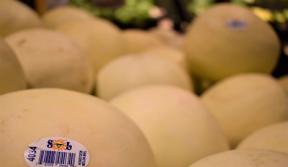For Immediate Release
Contact:
Stephen Coats (773) 262-6502
Nora Ferm (202) 347-4100
Worker Rights Groups Denounce Dole’s Valentine Day’s Mass Firings;
Release Report Blasting Colombian Flower Conditions
Worker rights groups today released a special “Valentine’s Day Report: Worker Justice and Basic Rights on Flower Plantations in Colombia and Ecuador,” finding that flower workers in the region earn poverty-level wages, labor long hours, and suffer significant health problems due to over-exposure to harmful pesticides. About two-thirds of all roses sold in the U.S. come from Colombia. Many of the rest come from Ecuador.
The report, issued by the U.S./Labor Education in the Americas Project and the International Labor Rights Fund, also focuses on a worker struggle on the largest plantation of the country’s biggest flower grower, Dole. The report describes the struggle as the most important one in Colombia’s flower sector in the past five years.
In a move of stunning insensitivity, Dole fired nearly 200 flower workers on the plantation the weekend before Valentine’s Day.
“Dole’s message to flower workers in Colombia is a cruel reminder of the company’s blatant disregard for the rights of its workers. Many of the flowers these workers picked and shipped to the U.S. haven’t been bought yet, but the workers have already lost their jobs,” said Charity Ryerson, US/LEAP Campaign Coordinator.
Dole is the largest exporter of flowers in Latin America and accounts for 20% of Colombia’s flower production.
Flower workers organized a union on Dole’s largest plantation in November 2004 in order to address poverty level wages, mistreatment, and poor working conditions. Dole has fought the union since its inception, culminating in an October 2006 decision to close the plantation in July 2007. While Dole has cited low productivity, it has refused to provide documentation to prove the closing wasn’t an anti-union response. The president of the union is in the U.S. this week as part of an international campaign against Dole.
The report notes that flower exports from Colombia and Ecuador receive duty-free benefits under a U.S. trade program, the Andean Trade Preference Act. Benefits are by law conditioned on countries taking steps on worker rights. The trade program was extended by Congress in December 2006 for six months.
The report is available at www.usleap.org and www.laborrights.org. Interviews with flower workers are also available at You Tube.
